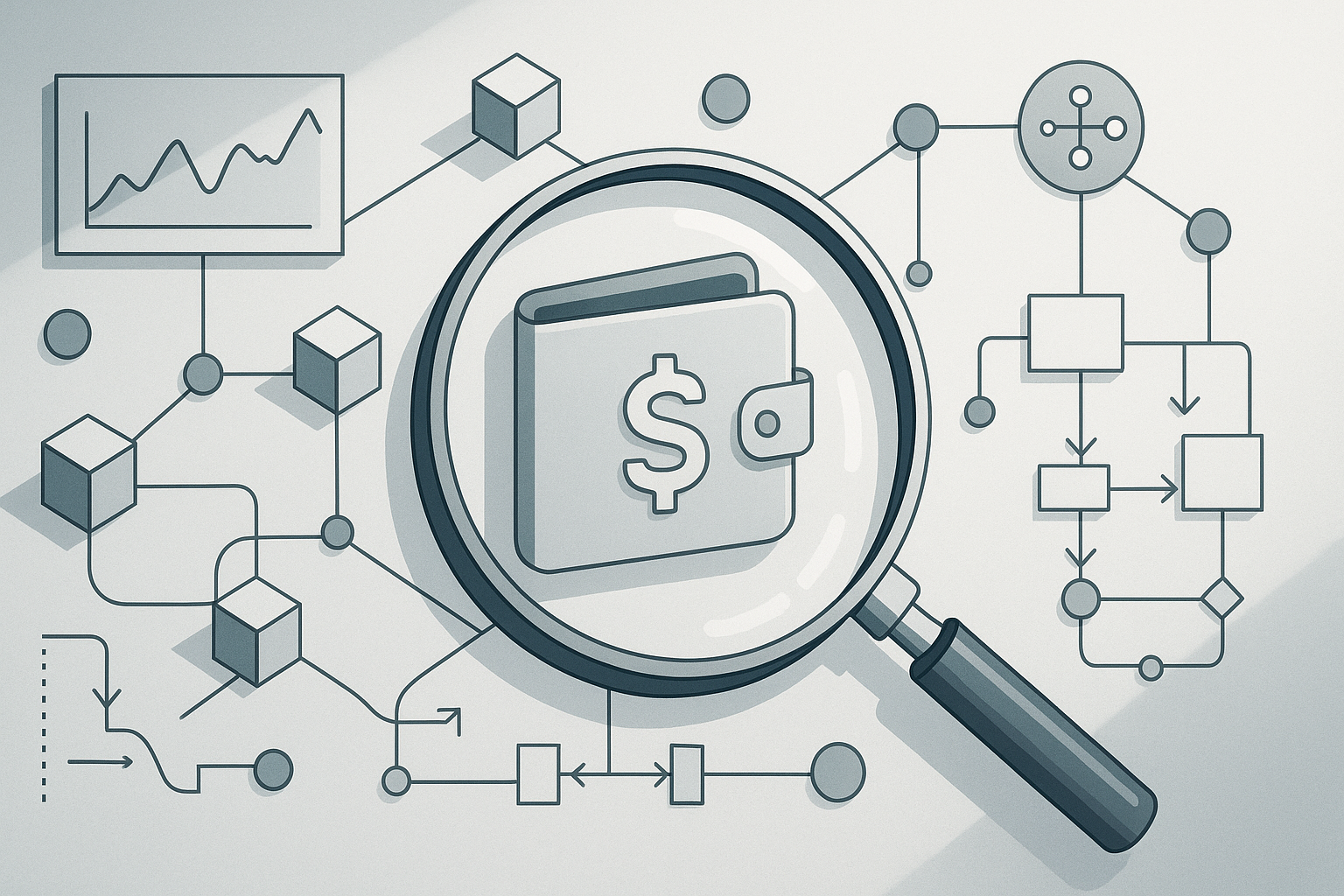BNB Chain has signaled a forthcoming end to its browser wallet extension, a change that requires account holders to take practical steps to retain access to funds and dApps. Reporting by OneSafe relayed the official notice and prompted a series of user questions about migration, account recovery and security.
Become a Doc: Profile Ethereum wallets and discover their behavior.
Use WalletAutopsy.
What the announcement means for users
Extension discontinuation means the browser add-on will stop receiving updates and support from the team that maintained it. Users who rely on the extension to sign transactions, manage keys and connect to decentralized applications will no longer be able to expect routine maintenance or fixes from the vendor. The vendor’s notice, covered by OneSafe, did not specify new functionality in a replacement client; it focused on the need for users to prepare.
Immediate practical steps to take
Exporting and securing keys stands first among recommended actions. Account holders should export any seed phrases or private keys from the extension only in a secure environment, avoiding cloud storage and online text files. Hardware wallets provide the strongest protection for private keys; if users can transfer assets to a hardware device, that is the most reliable long-term option.
Switching to supported clients is the next step. Several third-party wallets support BNB Chain accounts and can import keys or seed phrases created in the extension. Users should confirm compatibility on official project pages or through a trusted source before importing sensitive information. Installing a new wallet extension or mobile client without first validating its legitimacy introduces risk.
Account recovery and access control
Account recovery revolves around seed phrases and private keys. If the extension remains on a machine after support ends, it is still possible to use it for access, but that approach increases exposure to software vulnerabilities over time. Users should plan to extract recovery material now and test import into a different wallet to ensure addresses match and balances appear as expected.
Token approvals and allowances deserve immediate attention. Approvals granted to smart contracts from the extension remain on-chain until revoked. Users can use reputable interfaces or on-chain explorers to review and revoke approvals if necessary. Maintaining control of allowances reduces risk from compromised keys or malicious contracts.
Security risks and how to reduce them
Phishing and fake updates will likely follow any end-of-support announcement. Attackers often send fake update prompts or migration tools that request private keys. Users should not paste seed phrases into websites, follow unsolicited links, or download unofficial installers. Confirm any migration tool through official BNB Chain channels or by cross-checking multiple reliable sources.
Local device hygiene matters. Before exporting keys, users should run up-to-date antivirus scans, avoid public Wi-Fi, and consider using a clean, offline machine for the export process. After migration, regular reviews of connected dApps and token allowances are good practice.
On-chain consequences to monitor
Transaction continuity remains intact even if the extension stops receiving updates. Blocks and transactions on BNB Chain continue to process according to network rules, and accounts retain balances and token ownership on-chain. Users who secure their recovery material can resume normal on-chain activity by importing keys into another client.
Monitoring changes with crypto analytics tools will help users and analysts track whether large numbers of addresses move assets after the announcement. Observing spikes in outbound transactions from addresses tied to the extension can indicate urgency or opportunistic activity. That data matters for custodians and individuals who monitor network flows.
How to verify official communications
Confirm through multiple channels and prefer statements issued on verified project accounts or the official project website. OneSafe’s reporting referred to the vendor notice; readers should check the vendor’s official channels and any public statements from BNB Chain maintainers. Cross-referencing reduces the chance of acting on a counterfeit advisory.
Look for cryptographic proofs or signed messages when a project provides migration tools. Authentic tools sometimes include signatures tied to known addresses. If no signatures or verifiable markers appear, treat the tool with suspicion and seek confirmation from community moderators or recognized project maintainers.
What individual users should prioritize
Prioritize secure backups of seed phrases and private keys, then verify import into a trusted alternative client. Users should confirm balances and token lists after import and then revoke any unnecessary allowances. A short test transaction from an address to itself can confirm correct setup without exposing funds to transfer errors.
Limit exposure by moving high-value holdings to hardware wallets or to accounts that are not connected to browser extensions. Where frequent dApp interaction is needed, consider segregating assets between a hot wallet for daily activity and a cold wallet for long-term storage.
Where WalletAutopsy will focus next
Ongoing tracking of on-chain indicators and migration patterns will form the basis of follow-up reporting. WalletAutopsy plans to monitor smart contract approvals, significant balance movements and clusters of addresses tied to the extension. This work will use available crypto analytics to document trends without speculating on motives.
Guides and verification materials will appear as safe migration paths become clear. The aim is to provide step-by-step, verifiable actions for account holders and to flag emerging threats. Readers should not treat any single article as a complete security plan; prudent, layered defenses give the best protection.
Final considerations for account holders
Act now rather than later. End-of-support notices create a window in which attackers may intensify efforts to steal credentials. Securing recovery material, confirming imports into validated clients and revoking unneeded approvals reduces risk and preserves access.
Stay informed and confirm all steps through official channels. OneSafe relayed the original vendor statement; consult that report and the vendor’s official notices for any tools or timelines they publish. Careful action protects funds and keeps accounts functional on-chain regardless of the extension’s status.
WalletAutopsy will continue to follow developments and report practical guidance. The community benefits when users act deliberately and verify every change before moving keys or assets.
